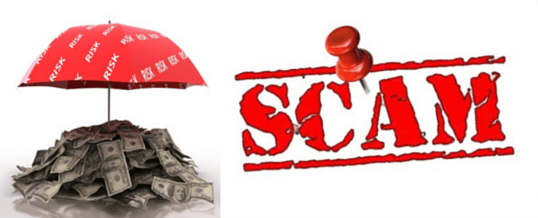
As if the global spotlight on offshore banking is not enough, some shady offshore banks are making matter worse by taking client's money – illegally.
Offshore banking is already in a tough position. With the IRS hunting for US Citizens' wealth offshore and the leaks that reveal questionable perks enjoyed by big companies and wealthy individuals via their offshore activities, legitimate offshore banks are struggling in signing up new clients due to the negative sentiment and more complex requirements.
Not stopping there, the upsides of offshore banking seem to attract the wrong type of clients – those who are dealing with illegal activities, such as tax evasion and money laundering.
And to put the cherry on top, the questionable and downright scamming offshore banks seem like to take part in the global lockdown on offshore banking.
If you are reading this by carrying a certain negative assumption about offshore banking, read this first.
If you are someone who knows what an offshore bank account can offer you (hint: asset protection and management – not tax benefits) and still considering your options concerning opening an account, the following information will help you on narrowing down your choices of offshore bank.
Without further adieu, these are 5 characteristics of shady offshore banks that you should know in order to avoid getting your asset managed by questionable bankers – or even worse - getting scammed outright:
1. Promised high profits
Legitimate offshore banks are in the game of asset protection. If the banker pitched you with high profits via their investing advice, which may include a pitch of “we are tax-free” you should be cautious. Very cautious.
It's true that many offshore jurisdictions offer tax benefits, but assuming the shady offshore bankers just want your business, you might open an account for the wrong reason. And we all know that if we don't do our taxes right, we could end up in jail.
2. Not authorized to conduct deposit-taking business by local regulator
Some offshore banks are offering pretty decent banking services, but they are not accredited by the local regulator. This means that your managed assets' safety is not guaranteed, as such banks haven't received authorization to take any deposits from clients.
3. Questionable physical address and contact info
What did you see in the contact info section when you visit an offshore bank's website? If you see questionable address (e.g. Using a P.O. Box), then you might want to reconsider your decision.
You should also browse the bank's website – is it looking professional? Is the information regarding the banking services well-written? These things might not be able to help you detect any scams or questionable activities, but these can help you screen any offshore banks.
If they are serious about your assets, then they should put extra efforts in building their image.
4. Poor or non-existent Internet banking services
One of the best features of offshore banking is the existence of Internet banking services. With a poor – even non-existent – Internet banking service, I see no reason why you would want to open an offshore account in the first place.
5. Not recommended by any offshore incorporation and banking services
Unlike their onshore counterparts, an offshore bank is not publicly promoting their services. Moreover, offshore clients won't be publicly shared their opinions about their banks. Those reasons will make investigating a bank's reputation a challenging task.
The best route for them to get the exposure – and clients - is through partnerships with trusted offshore incorporation and banking services.
Takeaway
Knowing the reputation of an offshore bank is very important. You wouldn't want to deal with shady banks – you want to protect your assets... not to expose them to more risks!
We offer free consultation – ask us anything about offshore banks' trustworthiness.
Read also "5 Criteria for Choosing the Best Offshore Bank"
MAY
2015

Table of Contents